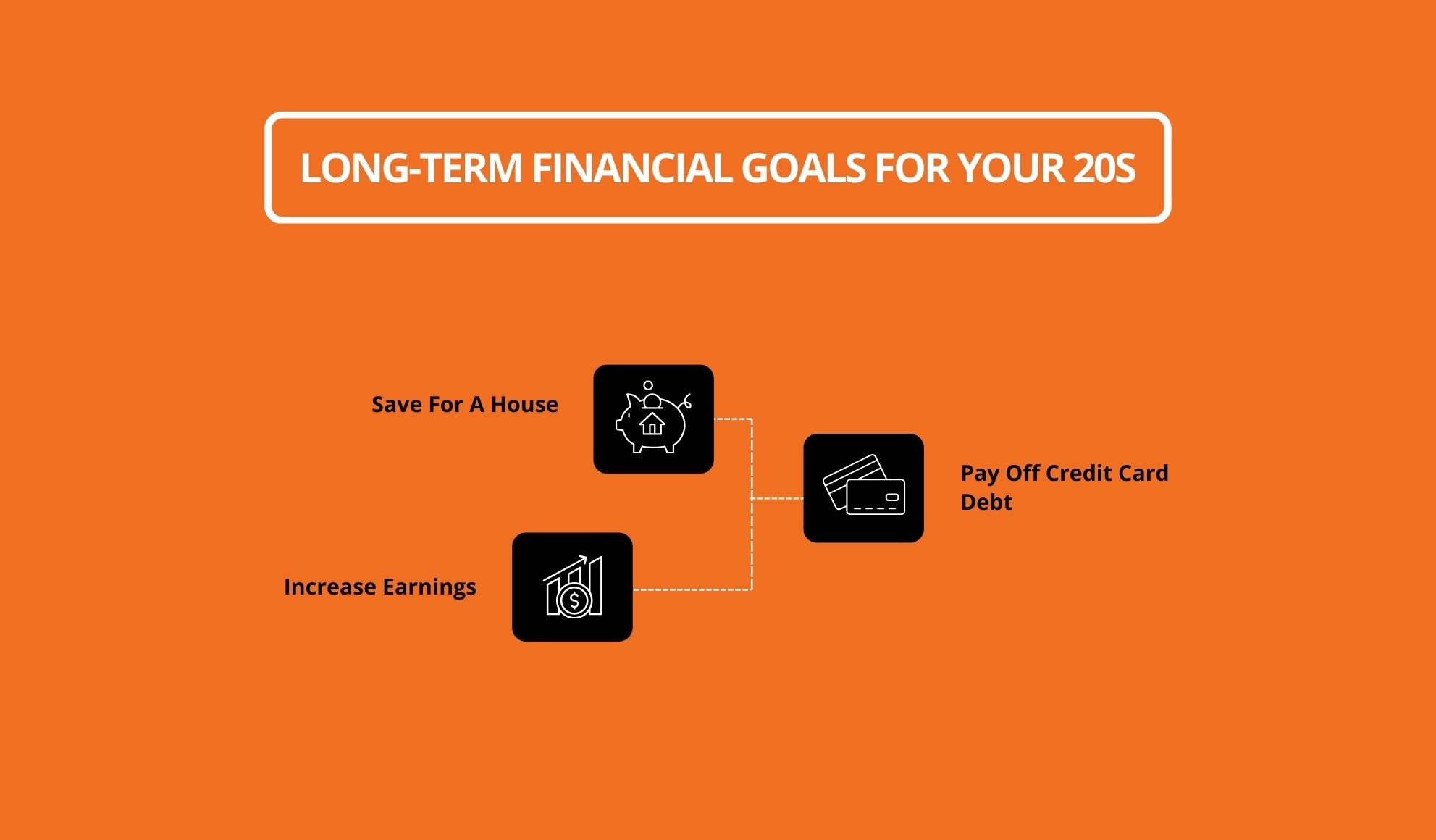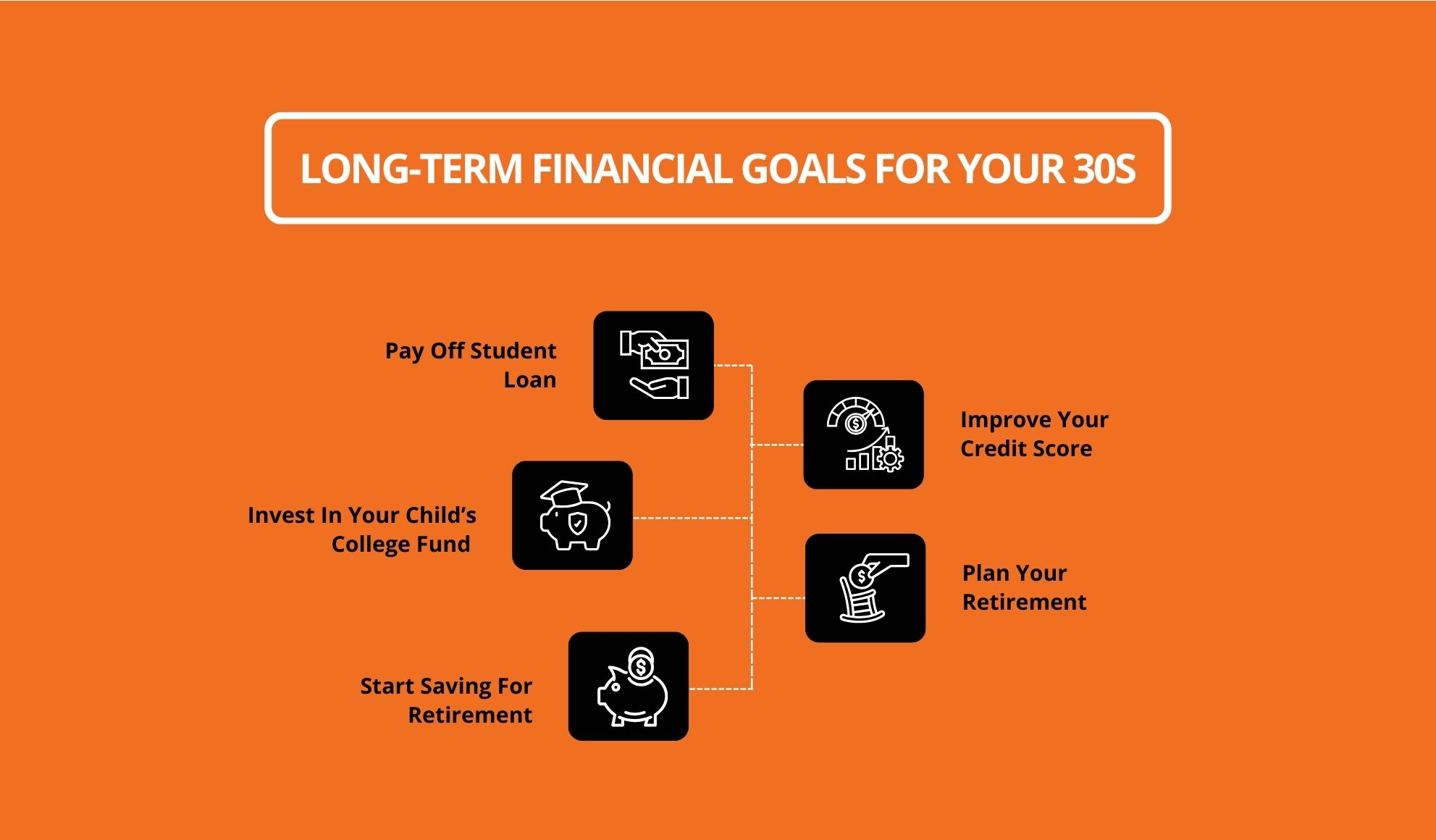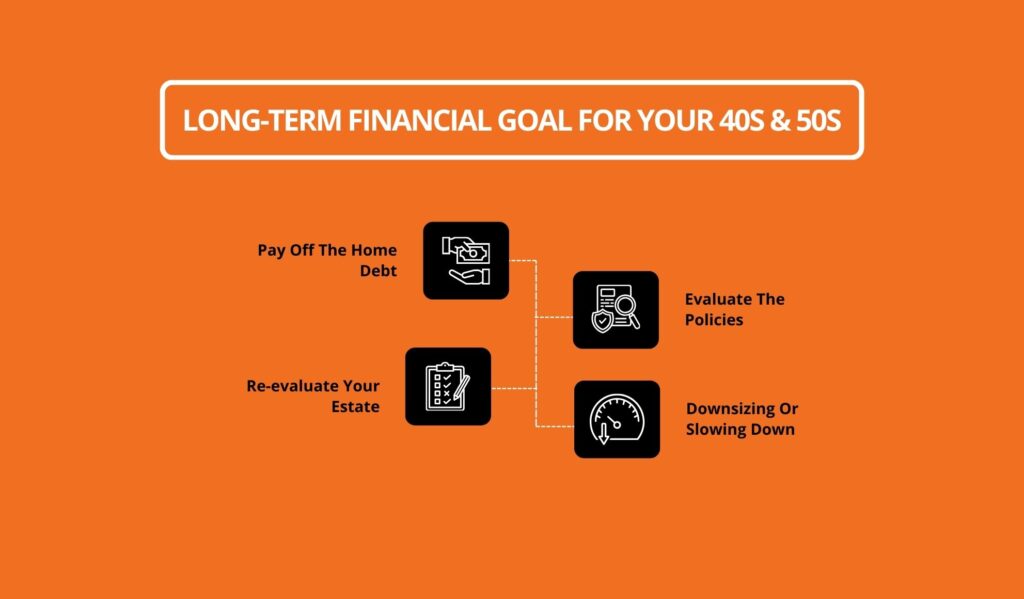How Can Long-term Financial Goals Help You to Grow and Become Secure?
by Ankita Tripathy Financial Planning 30 December 2024

A person without a long-term financial goal will never have a good retirement. Hold on, we are not cursing you or want you to doom. We are simply stating a fact. Just imagine you are old, and you cannot earn anymore. How can you sustain yourself?
Well, do not lose your mind over it. It is not too late as we got you. In this article, we will look at the effective means of planning your long-term financial goals that you need to work toward.
What Are Financial Goals?

Having financial goals is very important. In fact, you need to understand that a person without a financial goal is like a leaf blowing in the wind. You cannot be living paycheck to paycheck. What happens when you are old and cannot continue to work? What then?
This is why you need short or long-term financial goals. But what are they? Financial goals are not just ‘buying a house,’ ‘getting a car,’ etc. Financial goals are much more profound. Therefore, you need to approach the topic with more clarity and context.
But first, let us look at some of the benefits of long-term financial goals that can help you in your retirement.
Why Do You Need Long-term Financial Goals?
Long-term financial goals tend to put retirement at the centre of their scope. This means everything is related to or aimed toward a smooth retirement. Therefore, here are some of the best benefits of having long-term financial goals that you need to understand and know.
It can help you retire with more dignity. In other words, you will have financial freedom and do not need anybody to help.
Long-term financial goals also help you to plan your estate effectively as you might have enough wealth to distribute. Therefore, securing the future of the second generation.
You can finally take early retirement to have a business or a venture that can help you in the final days.
Long-term Financial Goals for Your 20s

Long-term financial goals are not linear. Hence, to approach it in a linear manner would be highly idiotic. There are no ‘Ten hacks to save up for your retirement.’ So, let us approach the topic of how it is supposed to be approached.
In the following sub-section and sections, we will be looking at long-term financial plans in an objective and age-wise manner to understand what it is and how it changes according to time and the age you are at.
The first stage is the 20s. The 20s is a turbulent time for an individual. Everyone seems to be in the race to make more money and get secure. Therefore, you need to understand your priorities and try to plan the following things.
Save for a House
Homeownership is another essential part of your long-term plan. As an adult, you will need your own house. You need it for several reasons, but a house is one of the most significant supports for your old-age. Therefore, as you are building your retirement funds, you need to save for your home simultaneously.
Pay Off Credit Card Debt
Credit card debts are pretty deceptive. They can creep up on you unknowingly and mess with your financial planning. Therefore, consider taking a financial planning course and you might be able to learn how to save up money to pay off credit card debts quickly. Then again, it can be a challenging task that needs understanding and clarity.
Increase Earnings
One of the biggest and most important things that you need to do is increase your earning potential. Try to enrol yourself in a course or get an MBA. They will actually help you in scaling your career effectively. Therefore, reserve your 20s to increase your overall income. This will help you in your long-term financial goals.
Long-term Financial Goals for Your 30s

Trust us when we say this: your 30s will feel a lot like your 20s but with more money and financial restraints. Hence, you need to be more careful and judicious with your planning. So, throw those notions out of the window now!
You simply cannot expect to manage your finances like you did in your 20s. This section will help you with the clarity and understanding of your financial liabilities in the 30w and how to navigate them effectively to save up for your old age. Let’s go!
Pay Off Student Loan
Student loans can be a massive pain in the ass. Therefore, you need to clear that off your head as soon as possible. In fact, you should consider ways to minimize student loan debts. Then again, a student loan is no joke. You need to clear that off and do it in the most effective and streamlined manner. Do not hurry or cut corners.
Improve Your Credit Score
By the time you are in your 30s, you need to understand that you have gone through some debt cycles. This is true for anyone. However, your job is to ensure that these cycles have run their course effectively and have produced some fantastic results. The best way to keep the credit score up is with timely payments, etc.
Invest in Your Child’s College Fund
If you choose to have a kid, you need to ensure that your kid has the best education possible. You cannot cut corners in any way. Hence, the best way to proceed is to start saving when you hit your early 30s. Trust us: tuition fees in America are one of the highest compared to most other countries in the world. Therefore, hustle and save.
Plan Your Retirement
Sounds quite early, but you need to ensure that you have a plan for your retirement. Identify the things that you might need and the expenses that you need to bear.
This sounds very pre-emptive in nature. However, it is actually helpful and necessary. We are not saying that you need to plan every little detail. However, we are indeed asking you to start a process. Just do not fall prey to investing myths that can run you into the ground.
Start Saving for Retirement
Once you have a preliminary plan of what you want to do, you should start saving towards it. The best way to proceed is to start small. Start small, like a minor SIP for your retirement or a PPF account. They can actually help you save up wealth and provide good returns in the process. Therefore, start slow but be diligent. Retirement funds take time to grow.
Long-term Financial Goal for Your 40s & 50s

Now, you are reaching the end of your long-term financial planning discourse. As you hit the 40s, you must realize that retirement is coming up fast, and you need to up your game. This is a much more complicated arena to work in.
By your 40s, you are reaching mid-life, and with that, you will start facing medical issues. In fact, now is the time when you need aid the most. Therefore, here are some of the ways you can financially plan your 40s and 50s.
Pay Off the Home Debt
You are in your 40s; you need to come to terms with the fact that you are reaching old age, and you need to ensure that you are clear of any form of debt. Here, we will be talking primarily about home debts, but these points ring true for all kinds of financial obligations. Try to clear your name off debts. This is the only way you can enter your late life with ease and without any tension. Start off with the big one and slowly move towards the more controllable ones.
Evaluate the Policies
Sorry for not covering this in the 20s section, but better late than never. Let us hope that you have an insurance plan or any other form of investment plan that can help you in times of need. So, now is the time to evaluate them and bring more finesse to the whole deal. Read all the documents carefully and re-evaluate the terms. If possible, get the help of a financial advisor, as they can help you with the process.
Re-evaluate Your Estate
Estate planning is one of the most prominent aspects of growing old. Hence, you need to ensure that you approach this section with more clarity and context. Take the help of an estate lawyer and evaluate the overall scale of your estate. This will help you plan and approach the process with more professionalism.
Downsizing or Slowing Down
The final stage is to slow down. Slowing down does not mean that you stop spending money. Try to adopt a frugal living stance, and you will manage to save money and have a smooth retirement. Hence, only pay when you have to. You are nearing the end, and you need to let go of your materialistic stance towards life.
The Final Thought
Well, these are the long-term financial goals that you need to understand and inculcate in your financial planning. Therefore, if you are wondering how to plan ahead, you can follow this list religiously.
If you liked this piece of content, then do let us know, and we will bring you more specialized content that can help you deal with financial questions more effectively.
Read More:



































































































